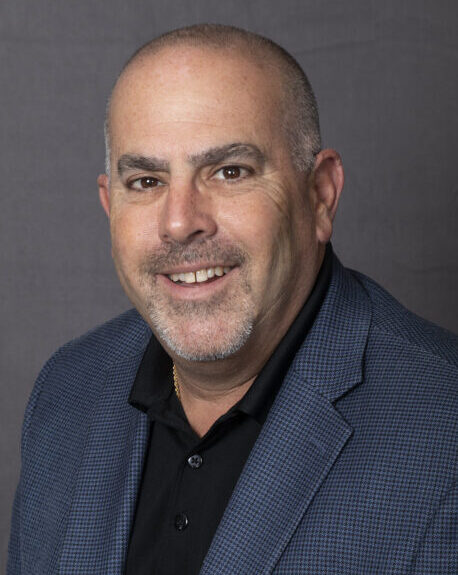By Dr. Jeff G. Konin
In some of my previous columns I have discussed the importance of cannabis education to many different stakeholders if we are to see advancement in this space. While the term “education” seems simple to understand for most if not all of us, the diversity and quality of what is being taught in the numerous platforms can leave some even more confused than when they started. What about for those of you who already have a solid baseline of understanding of cannabis and are seeking continued professional development? Where do you go for educational opportunities? How do you decipher between quality and propaganda?
First and foremost, peer-reviewed and published scientific literature is always a reliable source. Yes, you should still evaluate and critique all published work, but the mere fact that a paper has already gone through some review process is a good starting point for a minimal level of assurance. Keep in mind the key term “peer-reviewed.” Just because something is published doesn’t mean it has been reviewed by others for quality, accuracy, and an absence of bias.
From the perspective of live or online courses, they abound! And – they can be expensive! There is no single formula that can help predict how good the educational content will be when signing up to learn about cannabis. However, like all other conferences, there are a few guidelines that you can follow to better evaluate the course content ahead of time. Of course much of this also depends on the level of knowledge that you are starting with and what your overall goals are toward learning about a specific aspect of cannabis.
The first simple step is to review the promotional materials: website, flyers, save the date cards, etc. Look for professional quality, images, typos, etc. These are basic things that should raise a red flag. If you find careless wording or blurred photos, you might want to just wonder if the same lack of attention to detail will be presented in the course delivery. You should also look carefully for the following components related to the course on the promotional materials:
Program and/or Course Title: As simple as it sounds, the title of a program and its inclusive presentation topics may provide you with a sense of the quality and competence of the course. Titles can give you a glimpse into the scientific level of the content as well as the “low key laid back” approach to the delivery. This is not to say that you should always judge the book by its cover, but it is an easy starting point for a review process.
Learning Outcomes or Program Goals: A 1- or 2-day course can be themed and focus on a very specific topic such as the endocannabinoid system, or it can have a variety of topics that range from CBD and forms of application to the entourage effect of various cannabinoids. The choice is yours, depending on your goals of learning and levels of interest. While not everyone is an expert in using Bloom’s taxonomy to state course and presentation goals, those who do use such higher level of learning words such as “solving”, ‘detecting”, or “validating” reflect a deeper expectation as compared to words such as “identifying”, “estimating”, or “comparing”. Again, these are examples, but those who present more often and are tasked with writing goals and objectives will be more familiar with using higher level terms. It is easy to search online for an example of Bloom’s taxonomy of words. One thing to also consider is who is identified as the target audience. Be sure that you fit into this category or else you may feel as though you are in the wrong room!
Speaker Credentials: A series of alphabet letters after one’s name does not automatically translate to excellence at the podium. Credentials go beyond letters as they include accomplishments that contribute to the body of work in the area of the content being presented. We have all been to presentations where “heavy-hitting” named speakers disappointed us as well as listening to some of the best presentations delivered by speakers we never previously have heard of. It is also important to correlate the speaker’s presentation and know whether or not the individual has any potential conflicts of interest or biases in any way. This could influence the presentation and not provide you with a true reflection of the facts. Do your homework, ask around, have some familiarity with individuals as best you can to maximize your valuable time.
Registration Fees & Cancellation Policy: This can be a tricky area to consider. Think about it, if a course fee is very low, would you not assume there may be a lack of quality? After all, we equate lower costing items with lesser quality products. Do professional development continuing education programs fall under this similar assumption? Yet, if the course was very high priced – as some are tremendously overpriced especially in the online cannabis space – will it truly deliver a valuable package to you or is it a quick money grab? It is also helpful to view the cancellation policy. Any policies that just simply don’t appear to be “user friendly” would raise a red flag to me. Life happens, and if companies putting on courses are unwilling to recognize this I would likely turn toward another program. Refunds that can be applied elsewhere toward a future course are good options, and refunds minus a reasonable administrative fee are also fare. After all, companies may have spent a respectable amount of funds marketing and promoting the course, agreeing to speaker fees, renting room space and/or AV equipment, etc. But any program that refuses to honor a refund in any manner within a reasonable time for such a request is simply not acting in good faith. Such programs operating in this manner will ultimately lose clients and word of mouth will spread fast.
Professional Credits Offered: One item to consider is whether or not the program offers formal credits such as CME’s or CEU’s. Programs that formally offer credit that has been granted by your professional associations reflect a minimal standard of review and expectations that inform you of a higher level of quality to begin with. This doesn’t mean there may not be less than admirable speakers or some with great knowledge and poor presentation skills. It does mean that some vetting process has occurred at least through a paper review and typically those looking to simply put on a program and make a quick buck will not go through the approval efforts.
This is just a snapshot of some suggestions for reviewing cannabis educational courses. All of us have different experiences and we play a role in helping to bring efficacy not only to the science and clinical aspects of cannabis integration but also to ensure proper, factual, and efficacious education is being transmitted to our stakeholders.
Dr. Jeff G. Konin is a Clinical Professor in the Department of Athletic Training in the Nicole Wertheim College of Nursing and Health Sciences at Florida International University (FIU) where he directs the Global Initiative for Cannabinoid Research and Education. To learn more about FIU’s cannabinoid research and education initiative you can visit their website at https://go.fiu.edu/GlobalCannabis. Views represented in this column do not reflect that of Florida International University and are solely attributed to Dr. Jeff G. Konin.




























